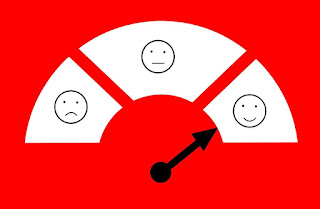Are you happy?
As tough as times can get, are you happy within those times? We don't ask for the times we are given, we are given the choice of how to respond.
How are you responding?
Are you doing the work that matters, that matters to others as well as to you?
Something that I've learned from working over forty years is that the work that I do always (yes, always) has opportunity for joy. I didn't grow up to be a basketball star, or a rock star, or a movie star. But, I've been blessed to have been given meaningful work that makes a difference for other people. What I've learned is that when my work serves others, it serves me best.
That makes me happy.
What if what makes you happy is what makes other people happy, too?
Do that.
-- doug smith


Comments
Post a Comment